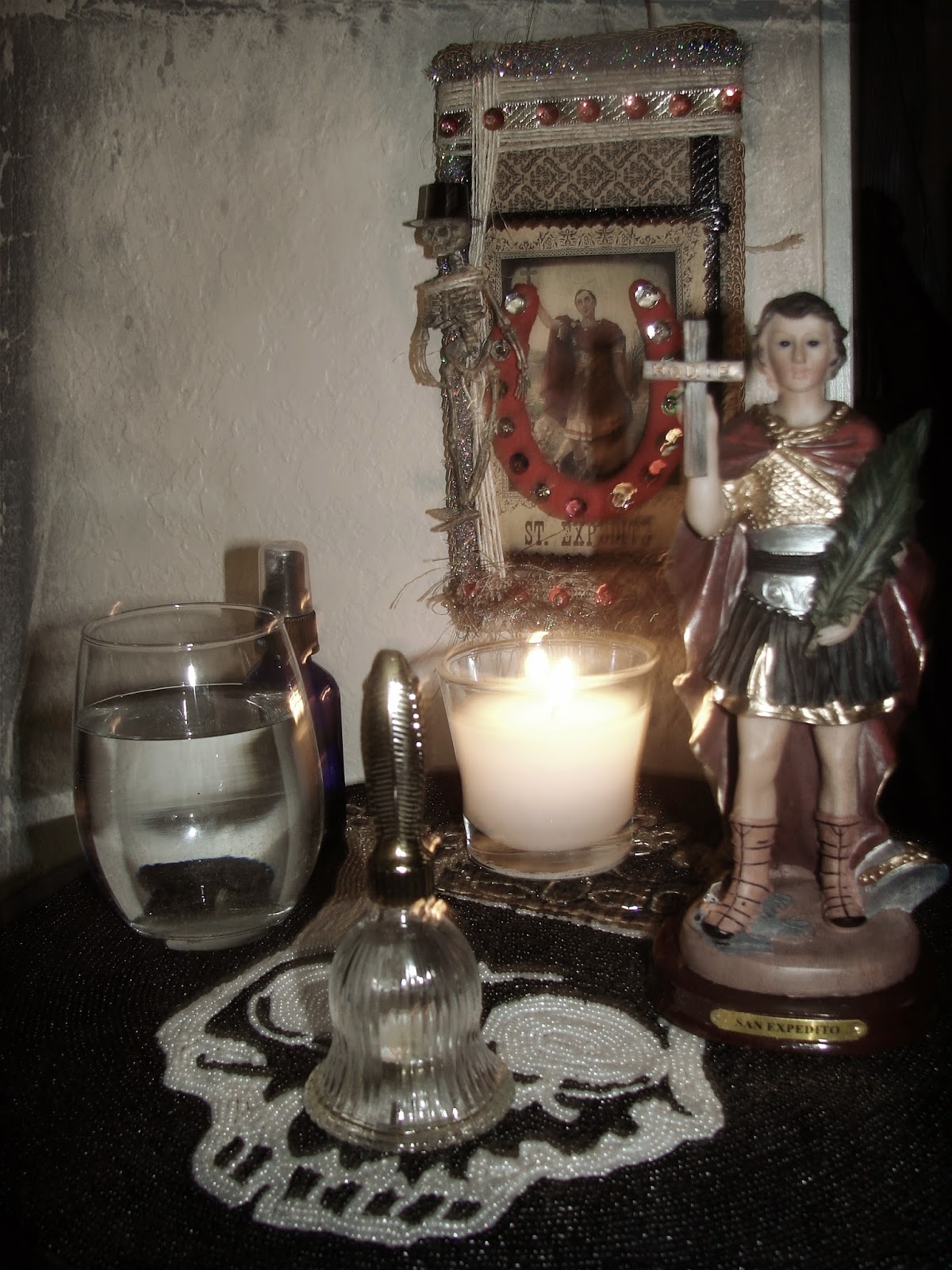This is a handy reference guide for devotees of St. Expedite.
Feast day: April 19
Patronage: Emergencies, procrastinators, merchants, navigators, computer programmers, hackers, revolutionaries, examinees, anyone needing a quick solution to a problem, e-commerce, internet users, New Orleans, Republic of Molossia
Birth: Unknown
Death: 303
Canonization: Martyrdom by Diocletian in Armenia
Day of the week: Wednesday,Thursday, Friday
Candle color: Red, Yellow, Green (all colors)
Offerings: Sarah Lee pound cake, red flowers, water, candles, red rock salt, Cajun and Creole spices
Payment for Services Rendered: Pound cake, candles, flowers, charitable work, giving money to the poor, public acknowledgement
Petition: When haste in any matter is needed; for fast solutions to problems; when your computer is not cooperating; for better business; when taking a test or exam; for finances; to end procrastination; for love; for money; healing; court cases; cursing an enemy; death, dying, and sorcery (these latter petitions are not part of traditional Catholic devotion to St. Expedite)
Corresponding Voudou/Vodou Lwa: Baron Samedi, Baron LaCroix, Guede Limbo
Glorious St. Expedite,I beg you to intercede before the Holy Trinity and grant me the grace of (state your petition). Answer me, and I will spread the glory of your name. Amen.
_____________________________________________________________________
Find candles, spirit bottles, jar spells, oils and more for St. Expedite at Creole Moon.





